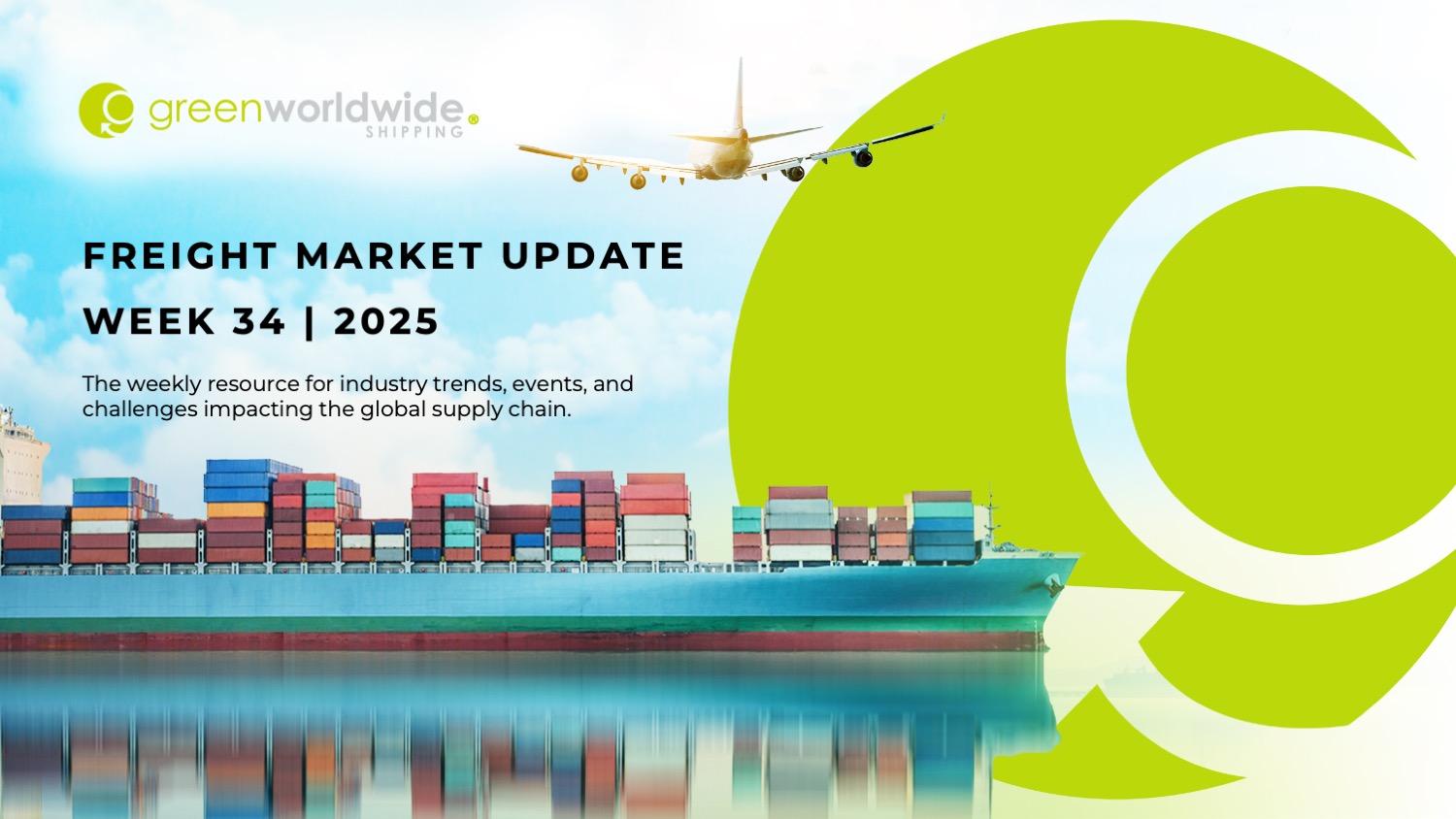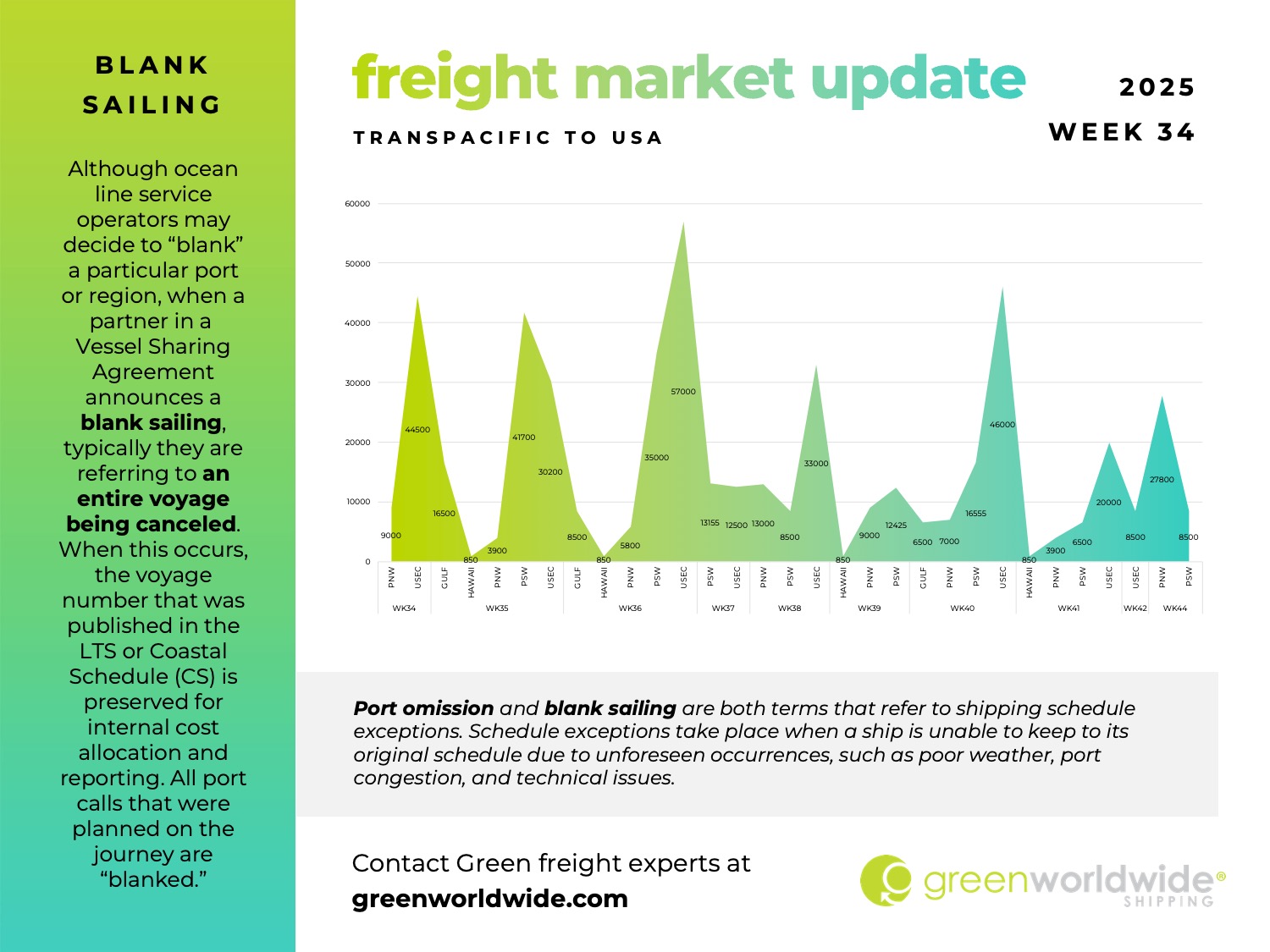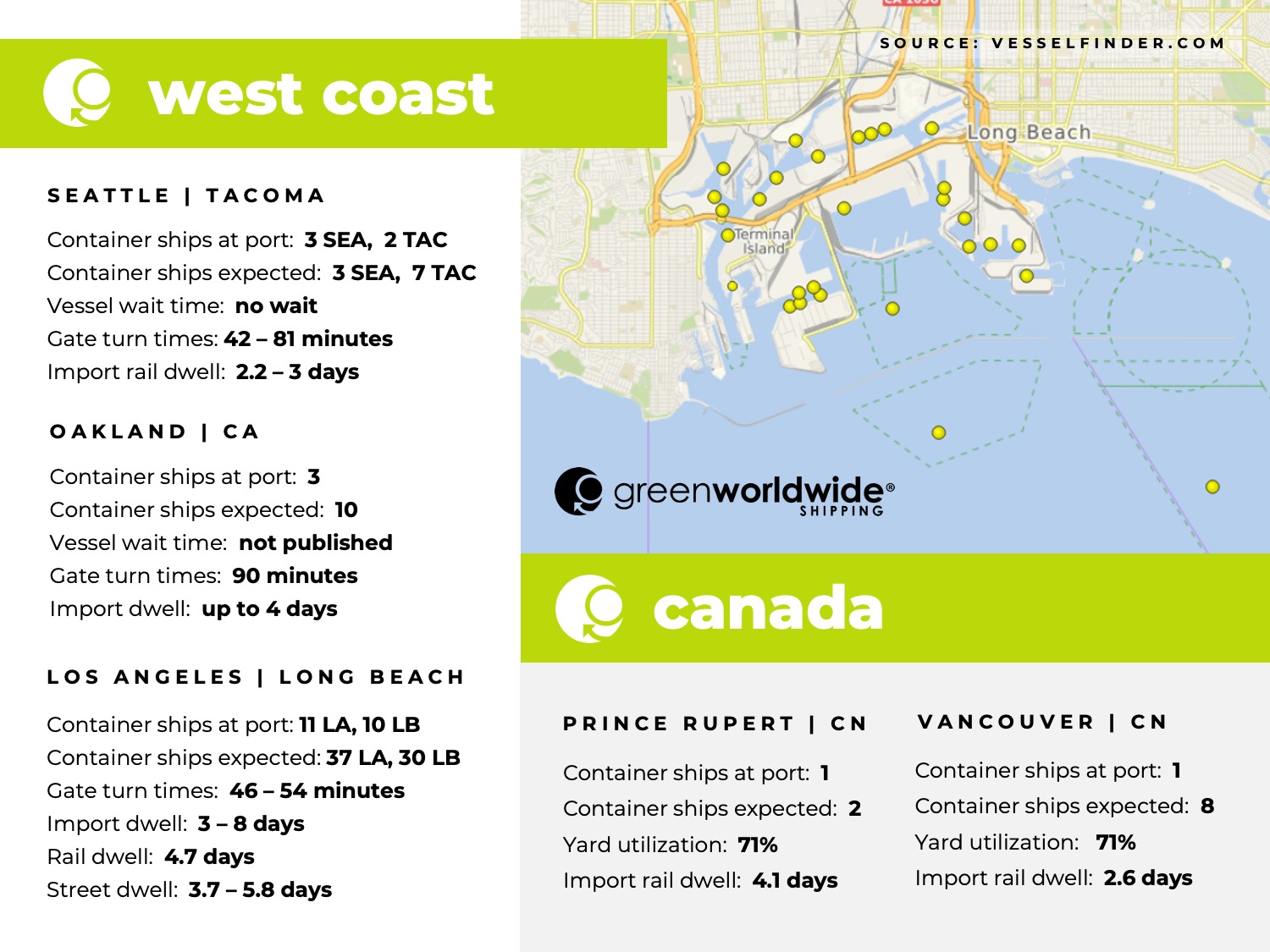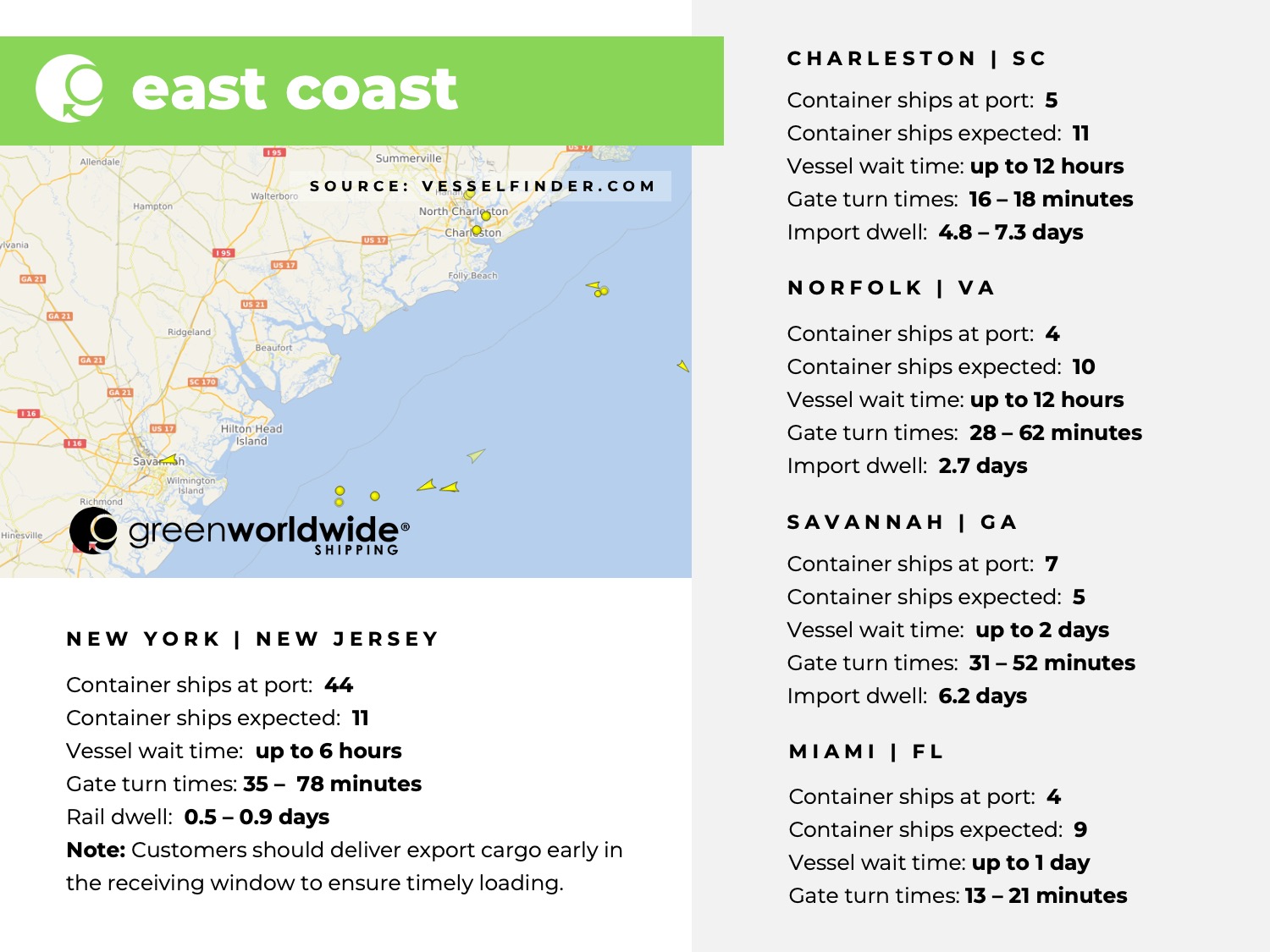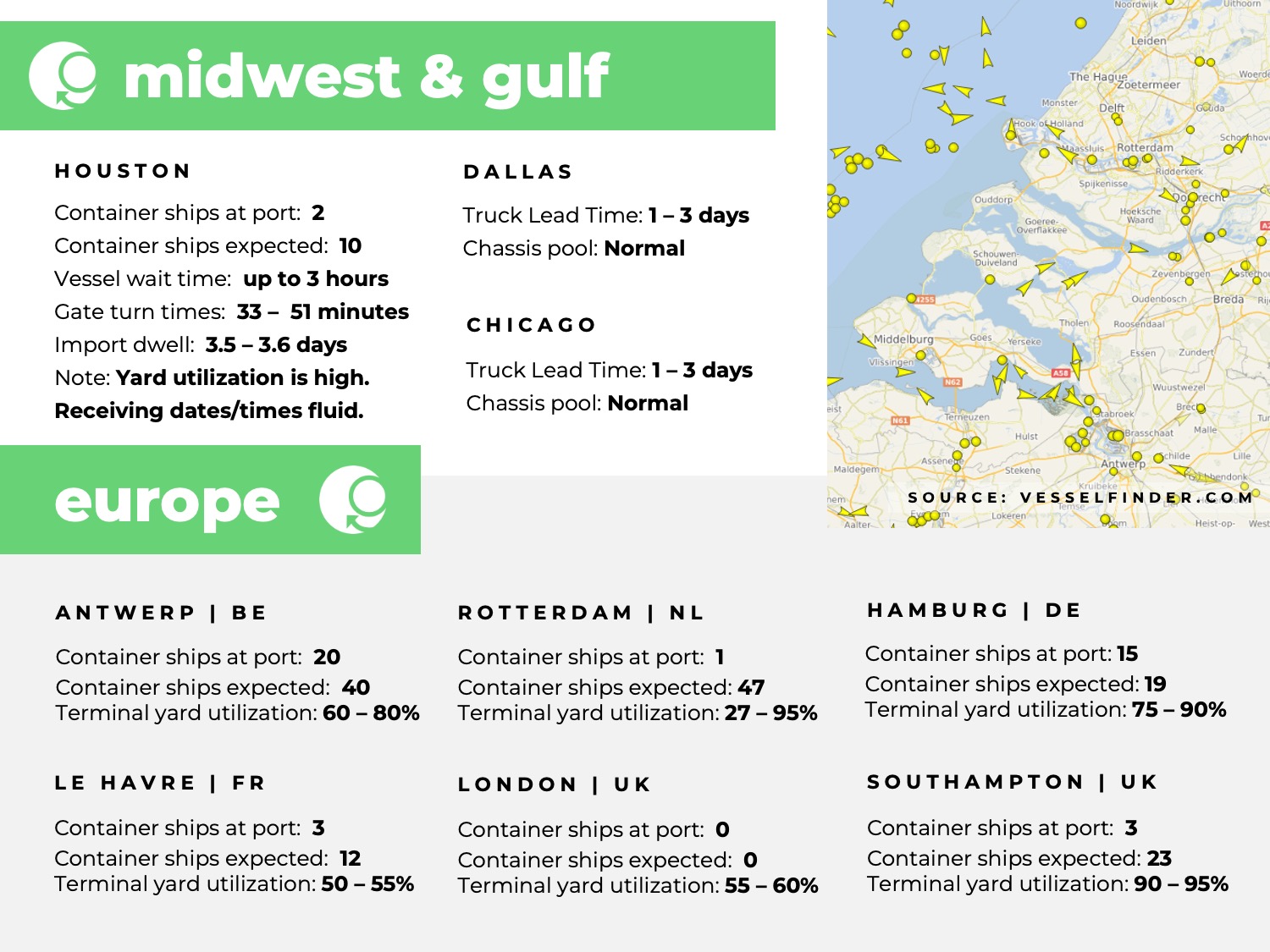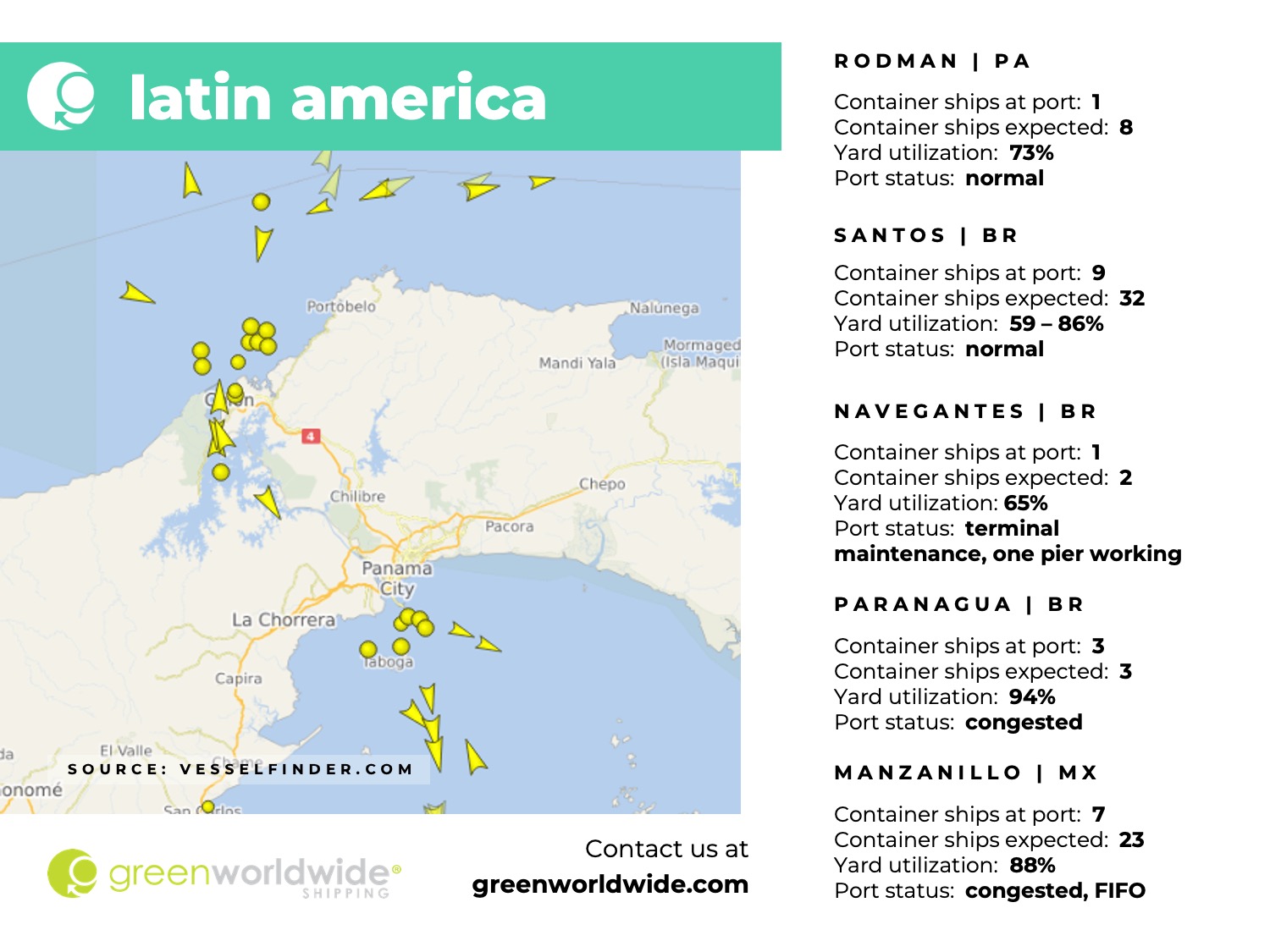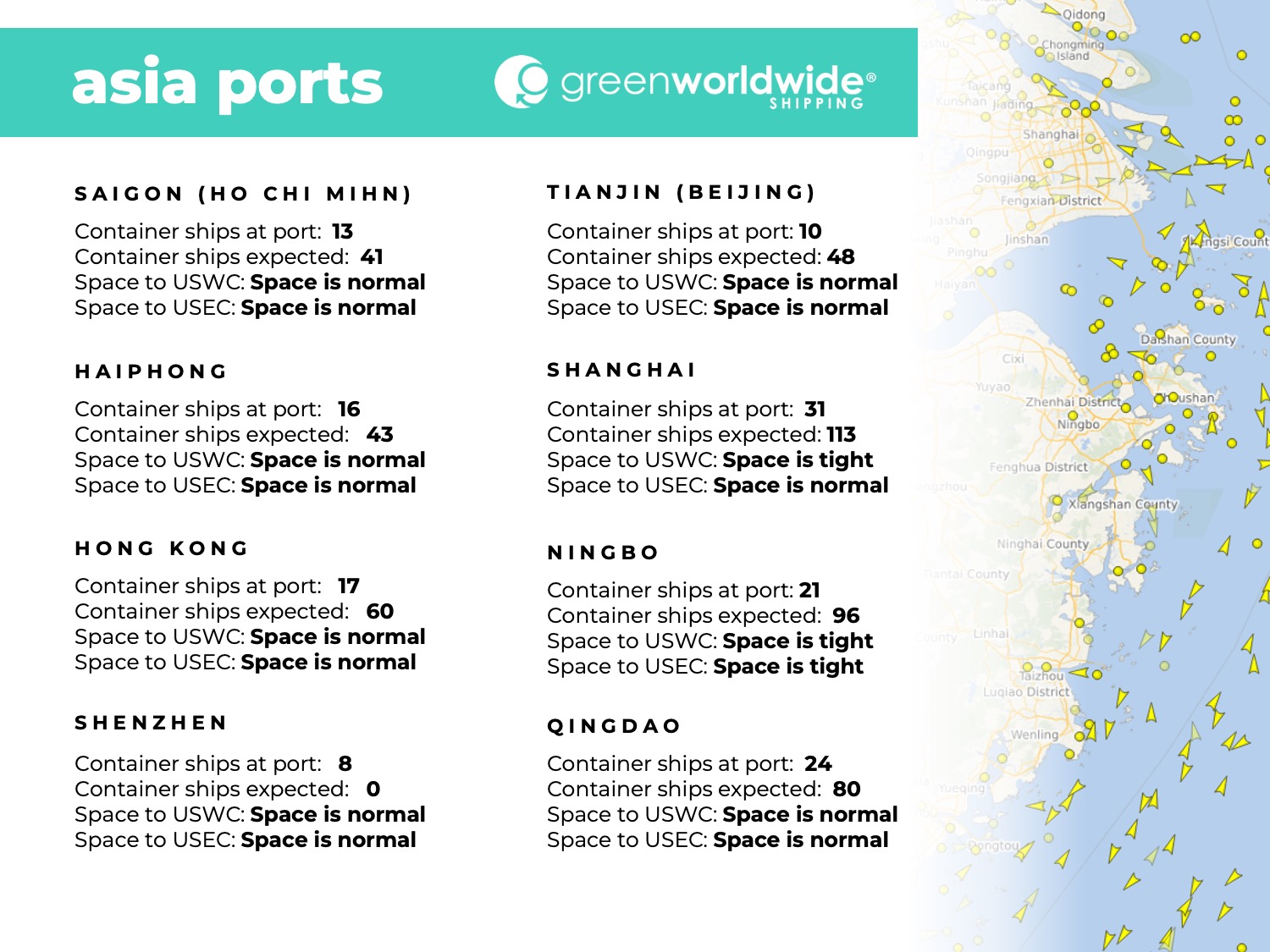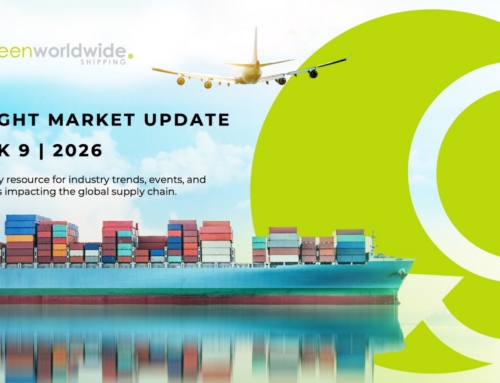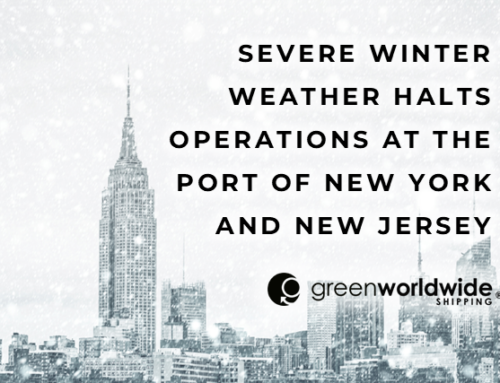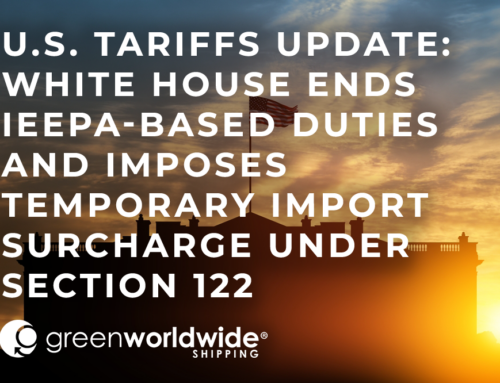In Week 34, U.S. importers face tightening transpacific capacity alongside new compliance requirements as Section 232 steel and aluminum derivative expansions take effect.
WHY IS TRANSPACIFIC CAPACITY EXPECTED TO TIGHTEN IN SEPTEMBER?
The 90-day extension of the U.S.–China tariff suspension, now in place through November 10, has provided near-term relief for Chinese exports. However, space on the U.S. West Coast is tightening for September, particularly with carriers that handle major BCO and e-commerce volumes. Several carriers have reallocated vessels to Latin America or reduced U.S. East Coast services to bi-weekly rotations, further constraining space. Forecasts suggest that these adjustments, combined with seasonal shipping activity, could create bottlenecks in the weeks ahead.
The latest analysis features a sharp rise in transpacific spot market volatility compared to pre-pandemic levels. Carriers’ rapid use of blank sailings, service suspensions, and port omissions, described as capacity management, has enabled faster responses to shifting demand but also intensified unpredictability in vessel scheduling and space availability.
WHAT DOES THE SECTION 232 EXPANSION MEAN FOR IMPORTERS?
On August 18, 2025, the Bureau of Industry and Security expanded Section 232 coverage to 407 new steel and aluminum derivative HTSUS codes. These include structural components, fabricated fittings, bearings, machinery parts, wire, cables, household appliances, vehicle components, and furniture categories. Only the metallic content is subject to Section 232 duties, with non-steel and non-aluminum components continuing to fall under reciprocal or other applicable duties.
CBP confirmed that Foreign Trade Zone (FTZ) entries for newly added steel derivative products under privileged foreign status before August 18 remain subject to applicable Chapter 99 provisions when entered for consumption. For aluminum derivatives, CBP has mandated detailed smelt and cast reporting. If “UN” (unknown) is reported for any smelt or cast field, a 200 percent duty applies. Drawback is unavailable for duties imposed under Proclamations 10895 and 10896.
Importers are advised to review their classifications, confirm declared steel and aluminum content values, and separate reporting for non-metallic components. For aluminum derivatives, a new ISO code reporting system for smelt and cast must be implemented, and recycled-only claims require supporting documentation. FTZ admissions should be audited to confirm that the privileged foreign status is properly applied.
With full enforcement underway, importers across industrial, consumer, and transportation sectors should prioritize compliance reviews to avoid disruption and unexpected exposure.
Stay up-to-date on freight news with Green’s Weekly Freight Market Update by following us on LinkedIn. For continuous updates, make sure to check out our website at greenworldwide.com.

